Okay, time for our 1960s and '70s nominees!
1961 New York Yankees 109-53 3 HOF—Sure, the stats are probably inflated by the fact that it was an expansion year in the AL. But this Yankees team still set a record with 240 home runs. The M & M Boys hit 115 between them, Skowron hit 28, Yogi hit 22, Elston Howard and Johnny Blanchard each hit 21 (and Howard batted .348). Tony Kubek showed warning track power with 38 doubles.
It was also an excellent fielding team, with one of the best infields in NYY history anchored by perennial Gold Gloves Bobby Richardson at second, and Clete Boyer at third.
This team often gets downgraded a little for supposedly not having enough bench. But it outpaced a terrific Tigers team despite losing Mantle for much of September, and it beat Frank Robinson's Reds in five in the Series with Mantle making only a couple pinch-hitting appearances and Maris mired in a terrible slump. In the final game, the Yanks won 13-5, with Hector Lopez driving in five runs, and Bud Daley pitching nearly seven innings of relief for the win.
(And in a great what-if: this team only did not have Rocky Colavito and Carl Yastrzemski because of the arrogance of Yankees scouts. Deron Johnson might also have had more than a cup of coffee, if needed.)
A more valid criticism is the depth of the pitching. Whitey Ford won the Cy Young and broke Babe Ruth's scoreless innings' record in the Series, but after that you have essentially three effective starters, and a terrific reliever in Luis Arroyo—and little more. The 1963 Yankees get short shrift because they were swept in the Series by the Dodgers, but it still won 104 games despite devastating injuries to Mantle and Maris, and you get the feeling that its superior staff might have got it past this team.
1970 Baltimore Orioles 108-54 4 HOF—The 1969 and 1971 teams are both a little better statistically, but I think this version of the amazing Orioles teams at the time was better balanced.
The O's won the last 11 games of the regular season, then swept a very good Twins team in the ALCS, and came within one pitch of sweeping the first, Big Red Machine—18 wins in 19 games to finish the year as champs. The Orioles had a terrific fielding infield, with Mark Belanger and B. Robby on the left side, an outstanding, all-around outfield, and dominant starting pitchers, with Jim Palmer winning 20 games, and Mike Cuellar and Dave McNally EACH winning 24.
The pen was not overwhelming but it was deep, and on the bench were a young Bobby Grich, Terry Crowley, and Merv Rettemund, the team's best hitter, at .322. But above all, the Orioles were just a tremendous organization, top to bottom, producing player after player who was terrific on fundamentals, and one of the greatest managers of all time in Earl Weaver.
Weaver's doctrine of "pitching and three-run homers" generally worked well, but made this team a little vulnerable when it didn't. Hence their losses to hot pitching teams in the 1969 and 1971 World Series.
1973 Oakland Athletics 94-68 4 HOF—The centerpiece of the only team besides the New York Yankees ever to win three consecutive World Series. And again, compared to the 1972 and 1974 editions, it's mostly go-pick-'em.
These teams featured an excellent shortstop in Bert Campaneris, a slugger who loved the spotlight in Reggie Jackson (the 1973 MVP), and a ton of useful lug nuts, assembled and re-assembled almost inning by inning by another HOF manager, Dick Williams. The pitching was always lights-out; in 1973, Catfish Hunter, Ken Holtzman, and Vida Blue each won over 20 games, and a seemingly bottomless bullpen was led by HOF Rollie Fingers.
The A's didn't have better records, I think, because they were rarely pushed in a week division, and seemed to be saving themselves for the postseason—or maybe they were just lying in the weeds. They seemed to thrive on strife, brawling and feuding, but always brought together in mutual hatred of their owner, Charlie O. Finley.
1976 Cincinnati Reds 102-60 4 HOF—The 1975 World Champs had better pitching, all in all, but they only won the Series against a Red Sox team (playing without an injured Jim Rice) because of a terrible call and Bill Lee.
The 1976 team never seemed seriously challenged. It not only finished 10 games ahead of a good Dodgers squad, but swept both the Phillies and the Yankees in the postseason. Considering position players alone, this was the greatest team in the 1947-1999 era. At every spot was someone with at least three or four top skills.
Joe Morgan, who won his second straight MVP, was one of the all-time greats. Tony Perez was a HOF slugger at first, George Foster and Ken Griffey, Sr., were outstanding hitters in the outfield, and Cesar Geronimo and Dave Concepcion were Gold Gloves—and good hitters—at center and short. Morgan and Johnny Bench picked up two more Gold Gloves at second and catcher. Bench had an off-year at the plate—but made it up by hitting .533 and winning the Series MVP.
The bench was also superb, including future Gold Glover Doug Flynn, and Dan Driessen. Given a chance to play as DH in the Series, Driessen hit .357, with a 1.152 OPS.
The team's weakness was pitching. None of the starters struck fear in the hearts of anyone, save for the oft-injured Don Gullett. But there was plenty of relief, and a very smart manager, Sparky "Dr. Hook" Anderson, who was not afraid to use it.
1977 New York Yankees 100-62 2 HOF—I loved this team, which handicapped itself by having a sociopath for a manager, and indulging in a seemingly endless series of idiotic, locker room fights. It also took terrible injuries that might have finished a lesser team, losing both established stars such as Catfish Hunter and Ken Holtzman, and projected young stars such as Mickey Klutts, who was supposed to play shortstop after hitting .325 in Triple-A, and Gil Patterson, a young pitcher some of us still mourn.
These Yanks just brushed it off and kept on coming. Fortunately, this team had a tremendous GM (with the patience of Job) in Gabe Paul, who kept sending in fresh troops, while insisting on hanging onto players such as Ron Guidry, against considerable pressure.
The Yanks had a tremendous fielding infield with Chambliss, Randolph, Dent, and Nettles, and terrific outfield hitters, in Reggie, Rivers (who hit a career-best .326), and Lou Piniella. Munson had his third straight, 100-plus ribbies, .300-plus average season behind the plate. There was also terrific depth, with Roy White able to platoon with Piniella, and hulking Cliff Johnson not only coming off the bench to hit bombs, but also do some catching. Poor George Zeber was named the best rookie in the spring, hit .323 with power, and only got 75 at-bats as a utility infielder.
The pitching was also outstanding, with Guidry, Mike Torrez, Ed Figueroa, and Don Gullett starting, and Sparky Lyle and Dick Tidrow leading a gutsy bullpen. Lyle won the Cy Young.
This was a team that could beat you in a hundred ways. They could "go long and go short"—beat you both in a short series and the long season, something increasingly important in the playoff era. They hit homers, stole bases, and pitched lights out. The question of whether they were better than the 1978 Yankees is a tough one; the league that year was probably better. But the 1977 squad beat down a very good Boston group, took KC even though Martin refused to start Reggie in the final game, and then drubbed the Dodgers while the Bronx was burning.
Next up: The 1980s and '90s!
Wednesday, August 15, 2018
The Greatest Team What Ever Was, Part II
Posted by
HoraceClarke66
at
4:33 AM
Subscribe to:
Post Comments (Atom)












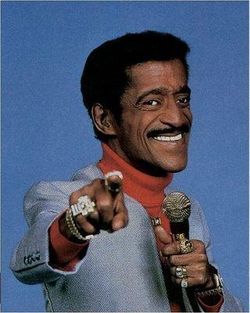
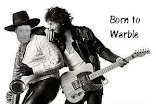


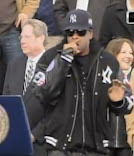











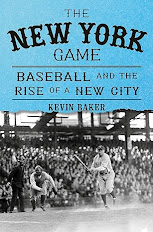









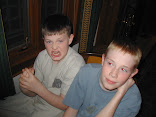

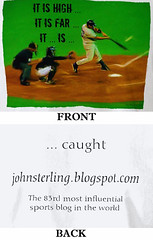



3 comments:
Did I miss the 1900-1940 installment?
Ahem! I refer you to Part I, in which I decided:
—Anything before 1920 was really too different a game to compare.
—Before 1947, most people of color were banned from the majors, which rules those years out despite some terrific Yankees teams in that time.
—From 2000 on, the game was too soaked with juice to make it about anything more than chemistry.
I do, though, welcome challenges to my methodology, as well as on the nominees selected. Let the great debate begin!!
I really want the world to know about this great man who brought back happiness into my life again after my husband left me and the kids 3 years ago for another women online when i contacted Dr Believe he cast a love spell for me within 48 hours my ex husband start calling me and begging for forgiveness for everything that have happened between us. I was so happy to have my family back together with love again here is the email of Dr Believe via believelovespelltemple@gmail.com a man with the great powers you can also call him or add him on Whats-app: +2348156148821
God bless you
I am very grateful for your help in my marriage.
Post a Comment